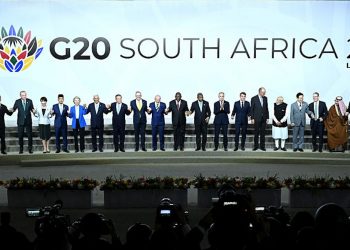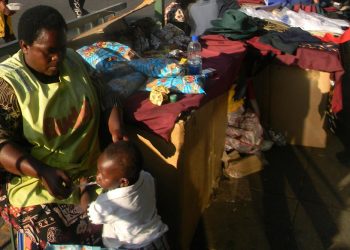Street vending is a major economic activity in most of Ghana’s urban areas. The vendors bring everyday goods to residents and commuters at affordable prices in places convenient to them. However, the growing intensity of street vending activities in Ghanaian cities such as Accra and Kumasi is creating management problems for city authorities. Vendors are being removed as cities aim to “clean up” and modernise the urban landscape.
City authorities haven’t created ways to support street vendors. Instead, they treat them as a nuisance and use stringent regulations aimed at displacing them. This approach overlooks the potential benefits that the thriving street economy could bring to the local economy and social fabric. In contrast, for example, South Africa’s policy supports informal economic activities by providing vending spaces for street traders.
As academics who specialise in urban planning, we set out to investigate the rules around street vending in Ghana. Our study was conducted in Kumasi, the capital of the Ashanti region and the second most important city in Ghana. We found that the regulation of street vending in Ghana is unclear, contradictory and ineffective. It fails to provide a clear policy direction and adequate planning tools for integrating street vending into urban areas.
Our research reinforces the argument that the regulation of street vending is often ambiguous. We argue that these policy inconsistencies create loopholes for the hostile attitude of city authorities towards street vendors.
We call for policies that recognise the socioeconomic value of street vending and make urban spaces more inclusive.
The lay of the land
Our analysis is based on two national policy documents. These are the National Urban Policy Framework and the Local Governance Act 2016 (Act 936). We also rely on two local policy documents specific to the Kumasi Metropolitan Area. These are the Kumasi Metropolitan Assembly By-Laws on Control of Hawkers 1995 and the Kumasi Metropolitan Assembly Medium-Term Development Plan (2018–2021).
The National Urban Policy recognises and promotes street vending as part of the urban economy. It calls for local government authorities to recognise and include the informal sector.
But the overarching law regulating street vending in Ghana is the Local Governance Act. It authorises local government bodies (city authorities) to pass by-laws that forbid street vending. This is in conflict with the national policy.
The gaps
Our study revealed that in the Kumasi Metropolitan Area, the authorities seem to want to help street vendors in some ways – to strengthen the capacity of informal economic actors. But they don’t make plans or take actions to do so in the medium term development plan. Local government authorities sometimes evict street vendors from the central business district.
In Kumasi, urban policy, regulations and local development planning do not include street vending in the urban development process even though vendors are the largest group of business people in the city. Instead of building stalls and facilities to accommodate these economic operators, the authorities rather expropriate urban space from them to develop modern structures which are expensive for street vendors to occupy.
There is conflict over the use of urban public spaces. City authorities view the activities of street vendors as illegal, while the vendors see them as legitimate sources of livelihood. Authorities control vending through eviction and relocation.
In recent years, city authorities have adopted urban infrastructural planning and development as a strategy to remove street vendors. Take the case of the new Kejetia Market Redevelopment Project, which replaced the largest traditional market in west Africa with a modern urban market structure in Kumasi. Over 10,000 street vendors and 4,000 market traders were displaced.
The neglect of street vending in the design means vendors will have to earn a living informally – which simply adds to the “problem” as the city sees it.
What next?
Policies and practices that try to exclude people are not a solution to the problems of street vending. They are often counter productive. Regulating street vending requires inclusive policy measures and a clear policy direction to manage these activities. At present, Ghana, like many other African countries, lacks effective planning strategies to manage the activities of street vending.
Our recommendations include:
-
coherent and inclusive policies that recognise the socioeconomic value of street vending and give vendors a rightful place in cities
-
reforming urban governance to support the informal economy
-
coherent and precise policies that give street vendors more security.
The current policy vacuum fuels repressive regulation and excludes street vendors from urban development processes.
To develop effective policy models, it is critical to learn from the experiences of street vendors and involve them in urban development processes. This starts with a change of attitude among city authorities.
The authors do not work for, consult, own shares in or receive funding from any company or organisation that would benefit from this article, and have disclosed no relevant affiliations beyond their academic appointment.
















